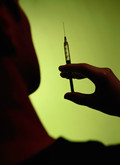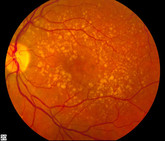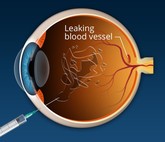Biosimilars/Research
Biosimilar adoption and prescribing in Japan: a physician opinion survey
Japanese physicians regularly request information on quality, efficacy, safety and cost burden to the patient when adopting or prescribing biosimilars, demonstrates a recent survey [1]. Higher biosimilars uptake may be achievable if such information was made more accessible and digestible.
Innovent and Eli Lilly announce final results for sintilimab plus biosimilar bevacizumab injection
Innovent and Eli Lilly have announced final clinical results for their sintilimab plus bevacizumab biosimilar injection, which has been accepted by China’s National Medical Products Administration (NMPA).
Totality of evidence supporting approval of Avsola in the treatment of IBD
Avsola (ABP 710) is a biosimilar to the infliximab reference product (Remicade), a monoclonal antibody targeting tumour necrosis factor-alfa. Avsola is approved in the US and Canada for all the same indications as Remicade, including adult and paediatric Crohn’s disease (CD), ulcerative colitis (UC), rheumatoid arthritis (RA), ankylosing spondylitis, psoriatic arthritis and plaque psoriasis [1, 2]. Infliximab is a highly efficacious treatment for inflammatory bowel disease (IBD), which includes CD and UC. The totality of evidence (TOE) supporting the development and approval of ABP 710 was recently reviewed [3].
Amgen announces positive phase III results for ustekinumab biosimilar
Amgen has announced positive results from a phase III trial of its ustekinumab biosimilar, ABP 654. The trial met its primary endpoint, demonstrating no clinically meaningful differences with the originator product, Stelara.
Are systematic switch studies for biosimilars necessary?
A recently published review [1] questions the need for systematic switch studies to demonstrate the interchangeability of biosimilars, suggesting the studies are becoming obsolete.
Regulating drug prices in Medicare unlikely to lead to ‘revenue targeting’
A report from the American Enterprise Institute (AEI) suggests that regulating drug prices in Medicare is unlikely to lead manufacturers to compensate by increasing revenues from the commercial market, based on analysis of similar events in the European Union (EU).
Secondary patents delay access to biosimilars in the US
Biological drug patents covering new methods of manufacturing and formulation are major contributors to delays in biosimilar market entry in the US, finds a new study published in Nature Biotechnology [1].
Phase III trial evidence used in approval of ranibizumab biosimilar Byooviz
Byooviz (SB11) is the first ranibizumab biosimilar approved by the US Food and Drug Administration (FDA) and European Medicines Agency (EMA) [1, 2].
Trastuzumab biosimilar Kanjinti remains stable in polyolefin bags and elastomeric devices
A study of the trastuzumab biosimilar ABP 980 (Kanjinti) finds that the compound remains stable in concentrated multi-dose bags and diluted in intravenous (IV) bags and elastomeric devices, providing preparation options to suit different global pharmacy practices.
The CROWN study: real-world comparison between ‘similar biologic’ and originator ranibizumab and bevacizumab
The last decade and a half have witnessed a paradigm shift in the way vascular disorders affecting the retina are treated. Anti-vascular endothelial growth factor (VEGF) antibodies have become the mainstay of treatment. These monoclonal antibodies are injected in the vitreous cavity. For the treatment to be effective, repeated injections every 4 to 8 weeks over many years need to be given, which proves to be quite expensive.













